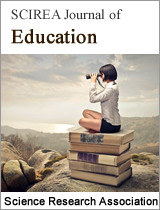THE ROLE OF LITERACY IN LANGUAGE INSTRUCTION
DOI: 10.54647/education880607 27 Downloads 9690 Views
Author(s)
Abstract
The article examines the importance of literacy in primary language education, highlighting the different forms of literacy and their role in the learning process. Literacy is not limited to the ability to read and write but encompasses broader skills such as critical thinking, social participation, and the functional use of language in various contexts. The article analyzes four main types of literacy: school, critical, functional, and social literacy, emphasizing their interaction with social and cultural conditions.
Next, a comparative analysis is presented of two teaching units for third grade, taken from an old and a new language textbook. The new textbook unit promotes a more comprehensive and student-centered teaching model, combining theoretical knowledge with diverse practical exercises that enhance critical and functional literacy. In contrast, the corresponding unit in the old textbook focuses on traditional methods, emphasizing grammar and spelling, without sufficiently highlighting skills in critical reading and social use of language.
Finally, the article stresses the need for teaching approaches that not only teach language skills but also cultivate students’ ability to use language critically, creatively, and socially responsibly.
Keywords
literacy, school literacy, critical literacy, functional literacy, social literacy, primary language education, textbook for third Greek grade
Cite this paper
Kaltsas Evangelos Panagiotis, Plati Panagiota,
THE ROLE OF LITERACY IN LANGUAGE INSTRUCTION
, SCIREA Journal of Education.
Volume 10, Issue 5, October 2025 | PP. 214-225.
10.54647/education880607
References
| [ 1 ] | Androulakis, G. (2020–2021). Literacy and language lesson design. Retrieved June 21, 2024, from https://eclass.uth.gr/courses/PRE_U_129/ |
| [ 2 ] | Baynham, M. (2002). Literacy practices (M. Arapoulou, Trans.; E. Karantzola, Ed.). Athens: Metaichmio. |
| [ 3 ] | Bonidis, K. (2005). Process and criteria for evaluating school textbooks. In Ch. Veikou (Ed.), Textbook and educational material in school: Concerns – Possibilities – Prospects (pp. 106–119). Athens: Pedagogical Institute. |
| [ 4 ] | Cervetti, G., Pardales, M., & Damico, J. S. (2001). A tale of differences: Comparing the traditions, perspectives, and educational goals of critical reading and critical literacy. Retrieved June 18, 2024, from http://www.readingonline.org |
| [ 5 ] | Chatzisavvidis, S. (2007). Linguistic literacy and the pedagogy of literacy: Theoretical components and data from teaching practice. In Proceedings of the 6th OMER conference (pp. 27–34). Patras: Administrative Committee of OMER. Retrieved June 20, 2024, from http://users.auth.gr/~sofronis/dimos/docs/ergasia116.pde |
| [ 6 ] | Gee, J. (2015). Social linguistics and literacies [E-book]. https://doi.org/10.4324/9781315722511 |
| [ 7 ] | Halliday, M. A. K., & Martin, J. R. (2004). Writing science [E-book]. https://doi.org/10.4324/9780203209936 |
| [ 8 ] | Intzidis, E., & Paparizos, Ch. (2005). Designing the language lesson as a literacy lesson. In Studies on the Greek language. Proceedings of the 26th annual meeting of the Linguistics Department, Faculty of Philology, Aristotle University of Thessaloniki, May 14-15. |
| [ 9 ] | Intzidis, E., Papadopoulos, A., Sioutis, A., Tiktopoulou, A., & Dimos, Ch. (2006). The incredible pencils. Language for Grade 3, Book One. Athens: OEDB. |
| [ 10 ] | Kostoulas, A. (2023-2024). Literacy and language lesson design. Retrieved June 21, 2024, from https://eclass.uth.gr/courses/PRE_U_300/ |
| [ 11 ] | Matsaggouras, H. (2007). School literacy. Athens: Grigoris. |
| [ 12 ] | Misiou, A. (2009). Literacy: Two historical examples. In D. Koutsoyiannis & M. Arapoulou (Eds.), Literacy, new technologies and education (pp. 25–29). Thessaloniki: Zitis. |
| [ 13 ] | Mitsikopoulou, V. (2001). Literacy. In A.-F. Christidis (Ed.), Encyclopedic guide to language (pp. xx-xx). Thessaloniki: Centre for the Greek Language. |
| [ 14 ] | Varela, A. (1975). Reader for 3rd grade. Athens: Organization for School Books (OEDB). |
| [ 15 ] | Xanthopoulos, A. N. (2010). Evaluation of the structural and functional characteristics of modern Greek language textbooks for primary school (Doctoral dissertation). University of Western Macedonia, Florina, Greece. |

